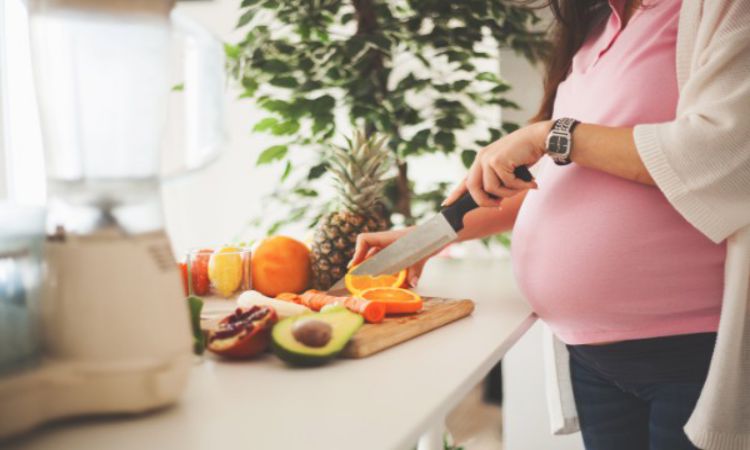 When you are pregnant, eating well plays an important role. Nutrition is crucial to helping your body cope with the additional demands of pregnancy. Maintaining a healthy weight while getting enough nutrients to support the growth of your fetus is the goal.
When you are pregnant, eating well plays an important role. Nutrition is crucial to helping your body cope with the additional demands of pregnancy. Maintaining a healthy weight while getting enough nutrients to support the growth of your fetus is the goal.
It is still essential to eat a healthy diet to get the vitamins and minerals you require. During pregnancy, however, you may not get enough nutrients. Prenatal vitamins can fill any nutritional gaps you may have while pregnant or trying to conceive.
Table of Contents
Prenatal Supplements: What are They?
In order to maintain a healthy pregnancy, pregnant women should take prenatal vitamins. As you plan for pregnancy and during pregnancy, your doctor may recommend that you take these supplements.
The importance of maintaining a healthy diet cannot be overstated — especially during pregnancy. Take prenatal vitamins if you find that your diet lacks some nutrients or if you know that your diet lacks some nutrients. Like you can take tablets that contain turmeric vitamins both. Doing this will ensure that you can reap the benefits of both.
Now let’s look at some essential vitamins and minerals you need to take.
Folic Acid
During pregnancy, the body requires more folate (vitamin B9) to develop your baby’s neural system and reduce the risk of congenital disabilities such as spina bifida (neurological tube defects). It is particularly important during pregnancy or during pregnancy planning to ensure that they get adequate folate.
While pregnant or planning to become pregnant, incorporating a 400 g daily supplement of folic acid (folate) from one month prior to conception can help make sure you get enough. Include these foods in your diet if you want to increase your folate intake:
- Leafy greens, such as spinach, broccoli, and kale
- In the case of legumes, for example. Beans and chickpeas
- Among the foods fortified with folic acid are: bread and breakfast cereals
The Vitamin D
There is no doubt that vitamin D plays a vital role in calcium absorption, immunity, and muscle development. You can obtain more vitamin D by soaking up some sun when you can.
A variety of foods contain vitamin D, including:
- Fish that is oily
- The liver
- The yolk of an egg
- Species of mushrooms
A deficiency of vitamin D during pregnancy increases the chances of the baby developing food allergies later in life. For women with darker skin tones, office workers, and women with lower levels of vitamin D, tests should be considered in order to determine whether they are at high risk of suboptimal vitamin D levels. Supplementation is also advised for women with lower levels of vitamin D.
The importance of folic acid, iron, iodine, and vitamin D supplements cannot be overstated, as they are not a substitute for a healthy, well-balanced diet. You should not consider pregnancy supplements a replacement for a well-balanced diet but rather as a complement to it.
Vitamin C
When it comes to maintaining a healthy immune system, vitamin C plays an important role. In addition, it contributes to the development of bone and muscle strength. If you are over 19, it is recommended that you consume 85 mg of vitamin C daily, and if you are under 19, you should get 80 mg.
As well as citrus fruits and juices, strawberries, broccoli, and tomatoes, your daily prenatal vitamins provide adequate vitamin C. Similarly, some of the best turmeric supplements also contain vitamin C.
The Iodine
Iodine is another nutrient that is important for pregnancy. A deficit of iodine in unborn babies leads to difficulties with learning, hearing, and physical development. Australian Health authorities recommend taking a daily iodine supplement during pregnancy and breastfeeding since your body requires more iodine. Make sure it contains 150 micrograms per dose!
You can get iodine from a variety of sources, including:
- Fish and seafood
- An algae-based food
- Salt with iodine
- Salted bread with iodine
The Vitamin B Group
Another essential vitamin that every woman needs to take during pregnancy is Vitamin B. Pregnancy requires a lot of B vitamins, such as B1, B12, B6, B2, and B9. The vitamins in this group
- Provide you with energy
- Ensure the development of your fetus by providing energy
- Enhance vision
- Contribute to the placenta’s development
You should get the right amount of B vitamins in your prenatal vitamin every day. You should also consume foods high in B vitamins, such as pork, poultry, bananas, beans, liver, cereals, and slices of bread made from whole grains.
The Way Forward
In all, taking adequate amounts of essential vitamins and minerals during your pregnancy is essential for developing a healthy baby. Therefore, if you’re expecting or trying to conceive, make sure that you meet your daily nutrient intake.






